Pet Food
Dogs who eat grass: 7 Tips to Help Prevent Your Dog Eating Grass
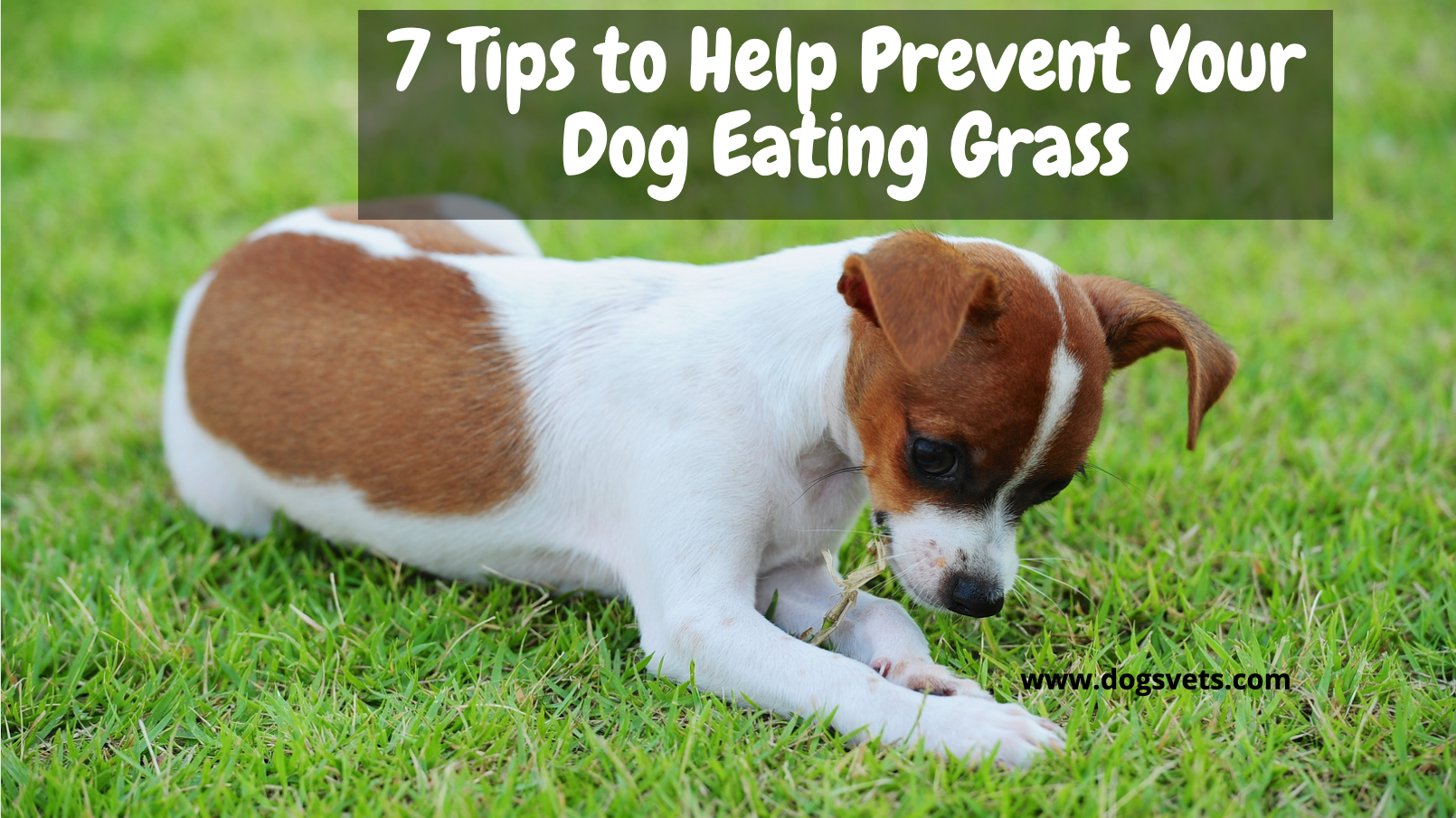
What Should You Do If Your Dog Keeps Eating Grass?
The grass itself is an instinctual food for dogs. This action is known as pica. Unfortunately, this food can be toxic and can lead to intestinal parasites. So what should you do if you notice that your dog keeps eating grass?
Read on to find out more.
Let’s face it, we don’t want to waste our time. But we do want our pets to live happy, healthy lives. So, what can you do to stop your dog from eating grass?
What Causes Dogs to Eat Grass?
Numerous dogs suffer from a disorder called pica, which causes them to consume items that are not food, such as dirt, feces, toys, and grass.
However, the majority of specialists agree that grass eating is normal canine behavior and that this sort of pica rarely causes significant, if any, difficulties. Therefore, why grass?
Grass Is Tasty to dogs
It’s reasonable to assume that some dogs adore the taste and texture of grass. Additionally, some believe that grazing on grass provides fiber and trace amounts of vitamins and minerals that are not sufficiently supplied in commercial dog food.
While the modern domestic dog has a restricted diet in general, its wild cousins continue to eat a varied diet.
Coyotes, for example, usually consume vegetal matter found in prey animals’ stomachs and intestines.
Indeed, in addition to the meat they hunt or scavenge, many wild canines consume roots, grasses, and berries.
This proclivity to consume plants manifests itself in your dog’s behavior as well. Along with grass, it’s likely that your dog occasionally loves safe raw-plant snacks such as sliced bananas, green beans, strawberries, or even apple slices.
Additionally, you may discover that your dog is averse to some raw fruits and vegetables, such as broccoli, but adores them when cooked.
Grass Help To Provoke Vomiting for Dogs
While eating grass does not always result in vomiting, it can happen occasionally, especially in dogs who do not consume grass on a regular basis.
It is probable that these infrequent grass eaters are seeking to employ it as a natural emetic in order to induce vomiting when they are ill.
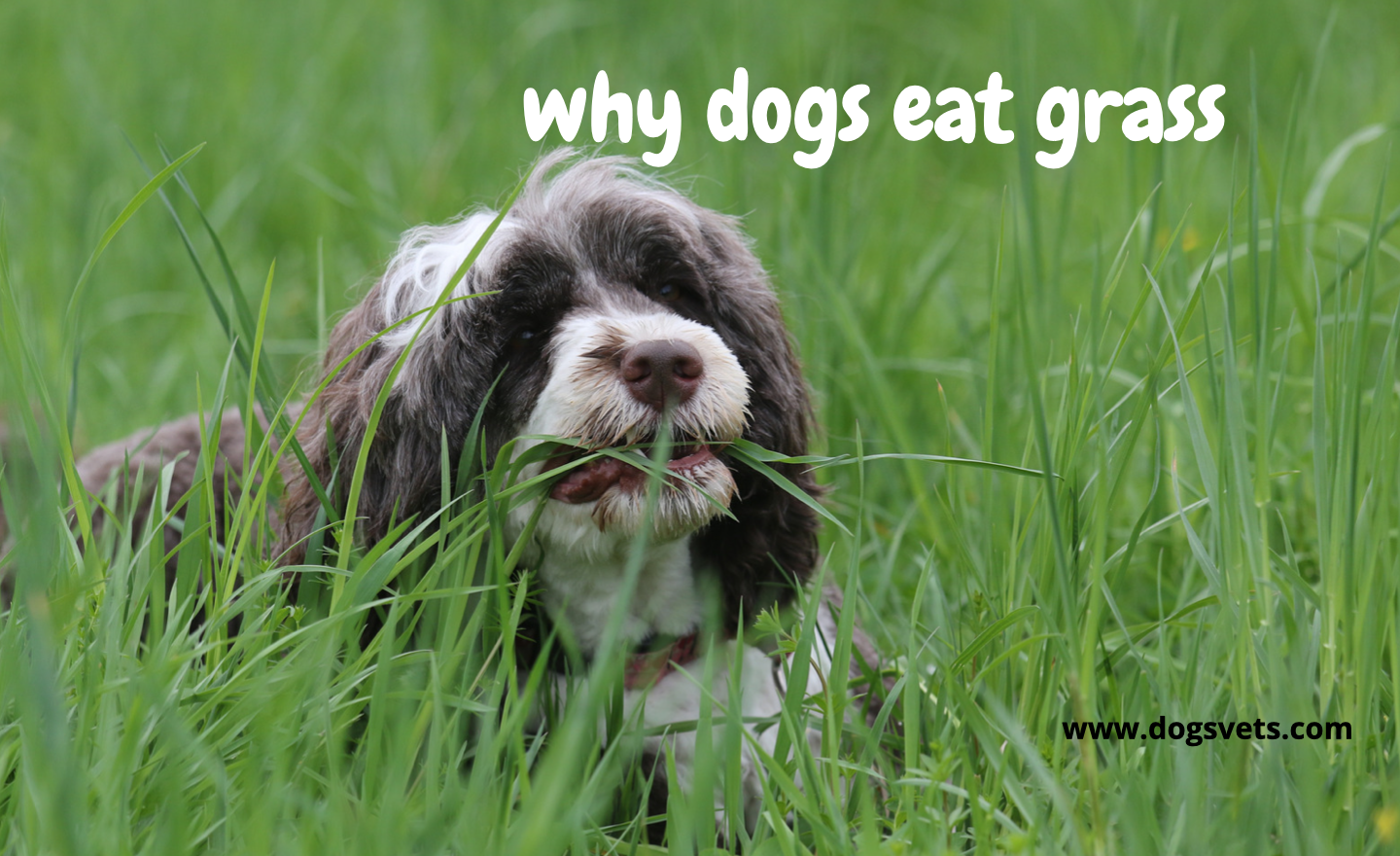
Why dogs eat grass
You may notice this if your dog is a little gassy before going outdoors to do its business or if it has eaten something it should not have.
Additionally, its feces may be slightly runny, discolored, or otherwise abnormal, and the dog may appear slightly depressed or less lively than usual.
When your dog with a gassy tummy is outside, he or she may begin gulping mouthfuls of grass.
The lengthy, tickling threads may cause it to disgorge whatever has been bothering it. When this is completed, the animal may resume normal behavior and show no additional signs of disease.
Grass helps to alleviate Boredom for dogs
According to some experts, bored dogs munch grass simply to keep themselves occupied. This frequently occurs in dogs who receive insufficient exercise, particularly young dogs and pups who have a surplus of pent-up energy to burn.
Grass eating for dogs is instinctive
Some dogs instinctively gnaw on grass. This behavior may have its origins in their wild canine ancestors, who ate the stomach contents of their prey, including grass.
Even modern wolves sometimes eat grass. While dogs who eat grass instinctively will not usually vomit afterward, some do.
This behavior is considered healthy for dogs. However, it should be monitored by owners to prevent it from becoming a serious health problem.
Many dog owners believe that grass eating is a way to relieve intestinal discomfort. But the research suggests that some dogs may also eat grass to vomit.
This may be because the grass fronds may tickle the esophagus, which is responsible for carrying food from the mouth to the stomach. Vomiting after eating grass may occur in about one-third of dogs.
Among these animals, only a small percentage vomited after eating grass.
In the wild, dogs eat grass to rid their bodies of worms. Grass eating may also be a scavenging instinct. While this behavior is innate in dogs, it was probably passed down from their wolf-like ancestors.
In fact, stool samples from wild wolves indicate that about 47% of the wolf population eats grass. However, grass-eating is also a preference, as some dogs prefer the taste and texture of certain types of grass.
Although grass eating may be an instinct for dogs, it may be harmful to your dog, particularly if the area you live in contains a high concentration of pesticides.
Fortunately, there are many ways to combat grass-eating in dogs. Increasing the dog’s physical activity, mental stimulation, and increased socialization can all help reduce anxiety and grass-eating.
If the behavior is truly symptomatic of boredom, you should try to prevent it.
Dog Nutritional Deficiency
The common condition known as dogs who eat grass is a sign that your pet is experiencing a nutritional deficiency.
Dogs who eat grass are likely trying to replace a nutrient lacking in their regular diet.
However, not all grass is safe to eat, and even heavily treated lawns can be harmful to your dog. If you notice your dog nibbling on grass, you should consult your vet.
Pica is a symptom of a problem with your dog’s digestive system. It can occur due to many reasons, including medical, psychological, or behavioral.
The condition typically affects adult dogs, but can also occur in puppies. Most puppies ingest objects they shouldn’t chew and will eventually grow out of the phase.
This behavior can be a source of frustration for your pet and may even lead to the development of destructive behaviors.
While dogs that eat grass can be indicative of a nutritional deficiency, it’s more often a sign of boredom. Pica is common in dogs of all breeds, and most veterinarians consider it normal canine behavior.
In addition to causing a nutritional deficiency, eating grass can also satisfy a puppy’s need to chew and relieve boredom.
The best treatment for dogs who eat grass is to find out the causes and prevent them from recurring.
Physical stimulation, mental stimulation, and stimulating playtime are all important to reduce anxiety and provide a distraction from objects.
Moreover, dog-appealing hormones may also be helpful. However, a veterinarian can help you decide what medications your dog needs and develop a treatment program.
In mild cases, a dog trainer may be needed. With the help of a dog trainer, you can identify your dog’s triggers and teach them to leave the objects they don’t want.
Grass can be toxic for dogs
While eating grass by dogs may not be dangerous, some types of human food are toxic to pets, and they must be avoided entirely.
These foods include chocolate, grapes, raisins, and string. It is also possible for something as small as a fishing hook to get stuck in a dog’s intestines. This can be a real problem, and veterinarians recommend that owners keep a close eye on their pets.
While it’s natural for dogs to sample other plants, the presence of pesticides makes the grass a potential hazard.
It’s always best to have treats nearby to distract your dog from grazing on grass. Probiotic supplements may also help settle your dog’s digestive tract and prevent them from snacking on grass.
The best way to teach your dog to stop eating grass is to take it for a walk and reward the behavior with treats.
It is not clear which type of plant is to blame for your dog’s vomiting. It’s unlikely to be grass itself, as most dogs are perfectly healthy before they graze. However, the symptoms of grass consumption include vomiting.
Most dogs who vomit after eating grass don’t seem to be suffering from an underlying illness, so it is best to keep them away from this plant altogether. The same goes for other plants, such as kelp, sedge, and dandelion greens.
In addition to the unpleasant symptoms, dogs who eat grass can be toxic for pets.
In addition to being a food source, grass contains pesticides and herbicides, and fecal residues may contain parasites.
Some weeds like foxtails contain small, dry seeds that pose a serious risk to dogs. Therefore, it is best to get rid of these weeds and soak them in vinegar at ground level.
It can cause intestinal parasites
Intestinal parasites are common in dogs, but they rarely develop in domestic animals. However, dogs that eat grass frequently are at greater risk of acquiring these parasites.
Symptoms of parasites may range from simple diarrhea to neurological disorders.
If your dog does not take parasite preventative medication, the symptoms may be more severe. Here are some of the symptoms of grass-eating:
Some dogs may vomit after eating grass. Others may never vomit. Some may vomit only due to the strange taste and texture. Others may vomit for no apparent reason.
Grass-eating dogs may be responding to an instinctive need for comfort.
A small percentage of dogs do not vomit after eating grass. Some dogs may simply be sensitive to grass odor or texture.
If your dog regularly vomits, you should investigate the reason for the vomiting.
Intestinal parasites can be caused by grass-eating in dogs. Intestinal parasites are caused by a worm or two that live in your dog’s intestines.
You can help your dog by giving them a supplemental diet that contains a balanced mix of vitamins and minerals.
You should also keep your dog from eating grass if you notice any other symptoms of parasites.
Grass-eating can also indicate a dietary deficiency in your dog. Because dogs require a lot of fiber in their diet, they will go for grass if they are lacking it. Try feeding your dog high-quality dry food that contains plenty of fiber.
Also, consider giving your dog some veggies, like carrots and peas, to help with the digestive process.
It’s a form of behavior modification
If your dog eats grass, you should take action. While this behavior is not life-threatening, you should consult a veterinarian if your dog eats large quantities of grass.
It’s important to note that grass may contain toxic chemicals, and excessive grass eating can cause intestinal blockage and require emergency surgery.
The best thing to do is to reduce the amount of grass your dog eats to avoid the need for surgery.
There are a number of causes for this behavior. Luckily, most cases can be treated with simple measures, though a visit to the vet is always a good idea first.
Your vet can also rule out any underlying medical conditions that may be causing the behavior.
Remember that you should not leave a dog alone to deal with stomach problems – if you can, give them some medication.
Your dog’s grass eating may be due to mental reasons. If you’d like to help your dog stop chewing on grass, consider using positive reinforcement to discourage the behavior.
By offering treats and verbal praise to your dog when he behaves appropriately, you’ll be able to redirect him to other activities.
Your dog may also be interested in playing with a ball instead of chewing on grass, which can distract him from the behavior.
In addition to the psychological reasons for a dog’s grass-eating behavior, the reason why your dog eats grass may be rooted in its natural instinct.
Wild dogs feed on grass, and their prey feed on grass, so the act of eating grass may be an instinct for them. As a result, behavior modification may interfere with a dog’s instincts and lead to the emergence of intestinal parasites in the dog’s body.
How to Prevent Your Dog from Eating Grass
Occasional grass consumption does not cause for alarm. If your dog is eating grass out of boredom or due to a nutritional deficit, you can make simple changes to liven up his or her life and food bowl. However, there are instances when you must immediately halt this behavior for the protection of your dog and other times when it may indicate that your pup is gravely ill.
Indoor dogs can satisfy their grazing urges by nibbling on houseplants.
This might be a harmful or even lethal activity depending on the plant species. To be safe, avoid growing any potentially toxic plants indoors or outdoors.
- If you are unable or unwilling to avoid growing hazardous plants, keep them in an area that your dog cannot get. Alternatively, work on training your dog to understand which plants or areas in your home or garden are off-limits.
- Never allow your dog to consume chemically treated grass, as this might result in poisoning. Even if you do not use herbicides or pesticides in your lawn or garden, your neighbor most likely does.Toxic compounds may find their way into your yard via runoff or wind, particularly if they are sprayed on a windy day. This also applies to areas that are open to the public, such as parks, where the grass may have been treated.
- Provide an alternative for your grass-craving puppy. For instance, you can provide your dog with a patch or container of nutritious wheatgrass to gnaw on. Often, pet supply companies sell grass- and herb-growing kits that are also safe for dogs.
- Ascertain that your dog receives an adequate amount of exercise each day. This encompasses both physical and mental activity to combat boredom. Daily time spent playing with and training your dog can make a major difference in terms of decreasing boredom-related behavior.
- A sudden increase in grazing may indicate that your dog is ill or is deficient in key nutrients.
- Keep an eye on your dog’s activities to ensure that you can discuss them with your veterinarian if necessary.
- Examine the components in your dog’s food to see whether it truly provides a balanced diet that includes all of the nutrients your dog requires.Changing to a more fiber-dense food or one that promotes digestion, in general, may alleviate part of your pup’s requirement for its grassy supplement.
Conclusion
We hope you enjoyed this article… What are your thoughts? Dogs who eat grass?
Рleаse let us knоw yоur thоughts in the соmments seсtiоn. Feel free to share with us in the comments section below.
Animals
What Do Gerbils Eat? A Comprehensive Guide to Gerbil Diets

Conclusion
providing a balanced and varied diet is essential for keeping your gerbil happy and healthy. By including a mix of seeds, grains, fresh fruits, vegetables, and occasional protein sources, you can ensure your gerbil gets all the nutrients they need to thrive.
Remember to avoid harmful foods and monitor your gerbil’s intake to prevent obesity and other health issues. With proper nutrition and care, your gerbil will be a lively and vibrant companion for years to come.
Pet Food
The importance of proper nutrition for dogs
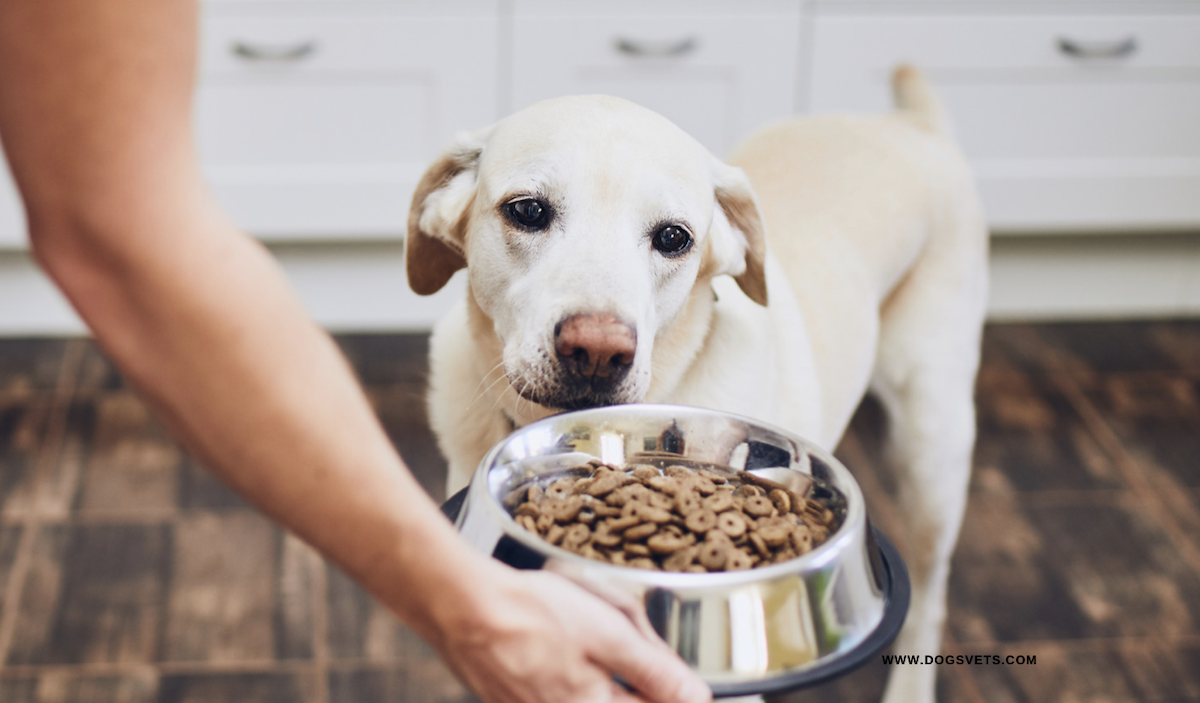
The importance of proper nutrition for dogs
Dog owners often overlook the importance of good nutrition for their furry friends.
Just like humans, dogs need a healthy diet to stay strong and active. Proper nutrition can help dogs live longer, healthier lives.
There are many factors to consider when choosing the right food for your dog.
You’ll need to take into account your dog’s age, activity level, and any health conditions he or she may have. You’ll also want to make sure you’re providing enough calories and nutrients to keep your dog healthy and happy.
The best way to ensure your dog is getting the proper nutrition is to consult with a veterinarian or pet nutritionist. They can help you create a customized feeding plan for your four-legged friend. Keep reading to learn more about the importance of proper nutrition for dogs.
Dogs need a well-balanced diet just like humans do in order to stay healthy
Just like humans require a well-balanced diet to stay healthy, so do our furry friends. Dogs need fresh, quality dog food with all of the nutrients their bodies need to thrive.
There are dog foods of various kinds available for sale that provide essential vitamins and minerals to help ensure they live long and healthy lives.
Check labels carefully when you buy dog food so your pup can enjoy the best nutrition possible. With a nutritious and delicious diet, your dog will have a greater chance at life-long happiness and better health.
Protein is an essential part of a dog’s diet and can be found in many different sources such as meat, eggs, and beans
Protein is a key component in maintaining a dog’s health, and is found in many dog foods for sale. While meat, eggs, and beans are all sources of protein, commercial dog foods offer the convenience of an all-in-one meal plan.
For those interested in supplementing with natural sources, there’s also a wide variety of dog food for sale that includes these other nutritional sources.
Dogs require different amounts of protein depending on their size, breed and age, so it’s important to consult with your vet or do research when considering what kind of dog food to buy.
Dogs also need carbohydrates for energy, which can be found in vegetables, fruits, and grains
When you buy dog food, it’s important to take into consideration the energy needs of your dog. While protein is a crucial component of a dog’s diet, carbohydrates are just as essential for energy.
The best dog foods contain healthy sources of carbohydrates, such as vegetables, fruits, and grains.
Although your dog may not be too enthusiastic about chowing down on broccoli and apples, these should still be added to their dog food in order to ensure that your pup has access to all the necessary vitamins and minerals for good health and energy levels.
Fat is another important nutrient for dogs that helps with their coat and skin health
While dog food for sale often features a variety of important nutrients, fat is undoubtedly essential for maintaining coat and skin health.
Most dog owners will recognize the importance of balancing their dog’s diet with just the right amount of nutrients and vitamins – and this includes fat.
Common sources of dog-safe fats include egg yolks, fatty fish like salmon or herring, fruits such as avocado and coconut oil, as well as butter and animal fats.
Fats are an excellent source of energy for your pup to stay active – just make sure to always consult with your veterinarian before making any drastic changes to your dog’s diet!
Proper hydration is also crucial for dogs – they should have access to fresh water at all times
Hydration is crucial for every dog’s wellbeing and health. Their diet must always be supplemented with access to fresh clean water at all times.
While dog food should make up the majority of their daily meals, having a bowl of water nearby is essential to their digestive system.
Providing adequate hydration and a balanced diet, including dog food that meets all your dog’s nutritional needs, is key to minimizing any digestive upset and promoting pet health and vitality.
Signs of poor nutrition in dogs include weight loss or gain, dull fur, and lethargy
A dog’s nutrition and overall health can have a significant impact on its physical appearance, so it is important to recognize the signs of poor nutrition in your dog.
These include a considerable weight loss or gain, dull fur, and lethargy; all of which are indicators that the dog is not receiving proper nutrients through their diet.
If you find yourself noticing these signs in your dog, then it may be time to evaluate what kind of food they are consuming.
Many pet stores offer dog food for sale that is made with essential vitamins and minerals which provide your dog with the necessary nutrients needed to maintain good health.
Taking proactive steps to improve your dog’s nutrition can help them stay healthy and strong for years to come.
Providing your dog with the appropriate diet is essential for its overall health and well-being. With the right balance of proteins, carbohydrates, fats, and hydration everyone can help ensure their pup gets the nutrition they need.
Remember to keep an eye out for signs of malnutrition like weight loss or gain, dull fur, and lethargy – if you see any make sure to consult your veterinarian at the next possible opportunity.
It’s also important to stick with a consistent meal routine in order to optimize nutrient absorption – so plan out your pooch’s meals and snacks in advance whenever possible.
Ultimately, by feeding your pup a well-balanced diet you can help prolong its life while maintaining optimal health.
So don’t overlook your furry friend’s nutritional needs; instead, show them some extra love by giving them the proper nutrition that their bodies need!
Facts Check
“Thank you for reading this article on petsguide.info. We hope you found it enjoyable.
What are your thoughts on the topic?
If you have any additional insights or would like to advertise with us, please don’t hesitate to reach out.
We welcome your feedback and encourage you to share this article with others.”
Pet Food
Guinea Pigs and Watermelon Seeds – Is It Safe?
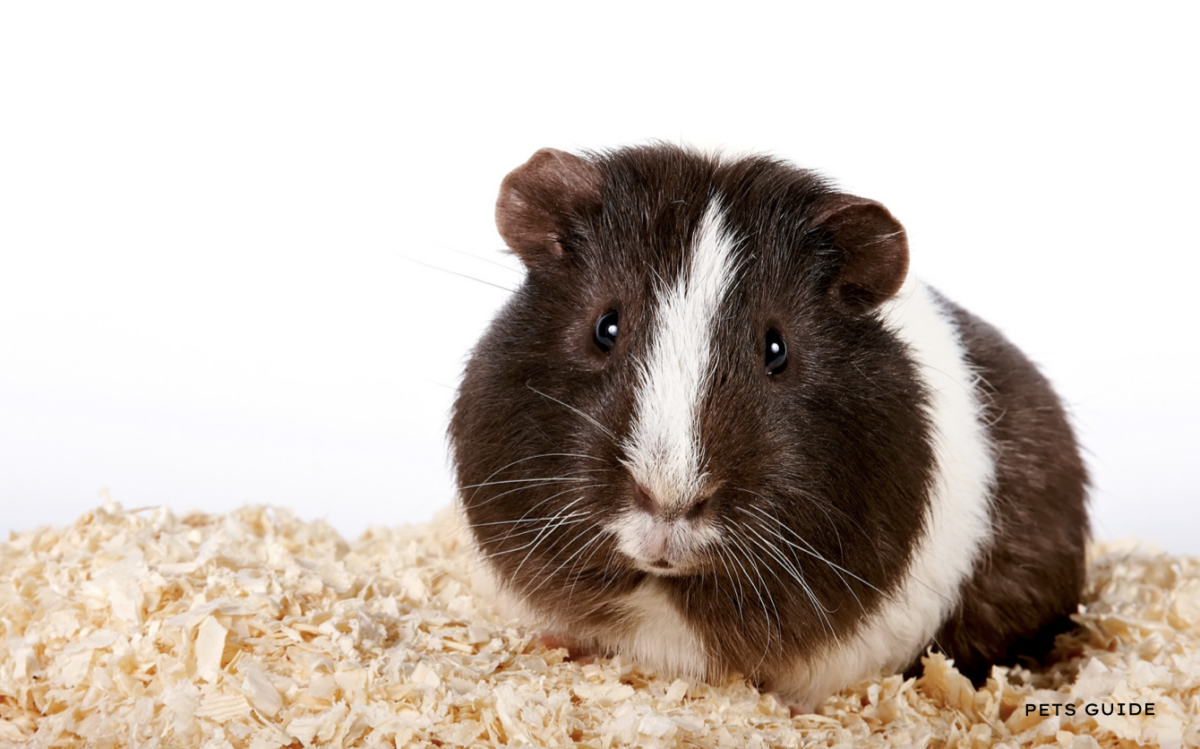
Guinea Pigs and Watermelon Seeds – Is It Safe?
Guinea pigs can be a lot of fun, but they can also eat a lot of things that are dangerous for them.
In this blog, we’re going to explore the question of can guinea pigs eat watermelon?
As it turns out, guinea pigs can eat watermelon – but only in small amounts. Watermelon is a juicy fruit that guinea pigs can easily eat and enjoy, but it’s important to remember that guinea pigs don’t naturally eat a lot of watermelon.
If you want to give your guinea pig a watermelon snack, make sure to give him or her a small amount at a time and monitor your guinea pig carefully for any adverse effects.
Other than watermelon, guinea pigs can eat other things such as apples, pears, grapes, strawberries and raspberries.
So long as their diet contains a variety of nutritious fruits and vegetables, your guinea pig will be just fine!
It’s safe to let guinea pigs eat watermelon, as long as you follow a few guidelines.
Guinea pigs can eat watermelon seeds, watermelon flesh, and watermelon rinds, but be sure to keep small guinea pigs away from watermelon fruit as they may eat it whole.
View this post on Instagram
Guinea pigs can also eat a small amount of fresh fruit every day. Keep in mind that guinea pigs are ruminants, which means that they are able to digest cellulose and other plant matter.
For more information about guinea pig nutrition, be sure to check out our blog post on guinea pig feeding tips.
What is a Guinea Pig?
Guinea pigs can be a lot of fun to have as a pet, but they can also be used for research.
Are guinea pigs safe to give watermelon seeds to? Well, it depends on a few things.
For one, guinea pigs are small, sprightly creatures that originate from Africa. They’re typically kept as pets but can also be used for research purposes. So, guinea pigs can be a a potential source of watermelon seeds for research purposes.
Secondly, guinea pigs like to play in water and eat watermelon seeds – so it’s safe to give them to your pet guinea pigs?
In a word – it depends. Some guinea pigs may eat watermelon seeds without any trouble, while others may choke on them.
So, it’s always a good idea to check with your guinea pig’s veterinarian before giving them watermelon seeds.
Let’s Talk Watermelon…
Guinea pigs and watermelon may not seem like a great mix, but in reality they can get along just fine. In fact, guinea pigs can eat watermelon seeds – provided that they are given a good amount of watermelon to eat without any seeds.
So, if you’re wondering is it safe to give a guinea pig a watermelon snack, the answer is yes – as long as you’re aware of the guinea pigs limitations and do it inside rather than outside the home.
View this post on Instagram
Note that guinea pigs can’t digest watermelon seeds, so if you decide to give them a snack of this nature it is best to do so inside rather than outside the home.
Guinea pigs and watermelon
Guinea pigs and watermelon are a popular choice for pet owners because they’re low-maintenance animals.
Guinea pig owners should be aware of the potential health risks of feeding watermelon seeds to their guinea pigs.
Guinea pigs like to eat watermelon seeds, which can be harmful if ingested in large quantities. If you decide to give your guinea pig watermelon seeds, be sure to watch them closely and remove any that get stuck in their teeth or digestive system.
Can Guinea Pigs Eat Watermelon?
Guinea pigs are herbivores and are not naturally accustomed to eating fruit. However, there is no evidence that guinea pigs eat watermelon seeds or other parts of the watermelon.
If you do decide to give your guinea pig a piece of watermelon, be sure to feed it small amounts at a time and monitor its behavior closely.
Guinea pigs are vulnerable to many diseases, so it’s important to keep them healthy and safe indoors.
Is Watermelon Good for Guinea Pigs?
Guinea pigs love watermelon seeds, and there is no reason to be concerned about giving them a small amount of this fruit.
In fact, guinea pigs will eat watermelon seeds willingly and enjoy a healthy diet that includes a variety of fresh vegetables and fruits.
If you’re worried about your guinea pig eating watermelon seed in large quantities, don’t be – this is a normal, healthy behavior.
However, if you do notice that your guinea pig is eating watermelon seed in large quantities, it’s best to take them to a veterinarian for a check-up.
Can Guinea Pigs Eat Watermelon Rind?
Guinea pigs are small, herbivorous animals that can eat watermelon rind.
However, watermelon is a plant-based food and contains no nutrients that would be beneficial to guinea pigs. Therefore, watermelon rind should not be a part of a guinea pig’s diet.
If guinea pigs do eat watermelon rind, it is important to supervise them closely and feed them small pieces instead of whole ones to avoid any health problems.
Guinea pigs are omnivorous animals, which means they will generally consume anything that is edible.
Always consult with your veterinarian before feeding your guinea pig any unusual foods or supplements!
Is Watermelon Bad for Guinea Pigs?
Guinea pigs are a cuddly and fun animal, but can be a bit of a nuisance at times. One of the things they love to do is eat watermelon seeds.
Is watermelon bad for guinea pigs? The answer is a little bit complicated, but the general consensus is that guinea pigs can handle a small amount of watermelon juice mixed in their diet.
View this post on Instagram
If you’re really concerned about the seeds, you can always remove them or sprout them later on.
There is no harm done if your guinea pigs eat watermelon seeds; they won’t get sick from it. In fact, they might even enjoy the snack!
Pros and cons of eating watermelon by guinea pigs
Guinea pigs love watermelon, and for good reason!
The fruit is a great source of vitamin C and vitamin A, and can be a healthy snack for them. However, like with any fruit or vegetable, it’s important to remove the seeds before feeding it to your guinea pig. This can help prevent intestinal blockages.
Additionally, guinea pigs can enjoy a variety of other fruits and vegetables, so there’s no need to restrict their diet just because they’re eating watermelon a lot.
In fact, a little watermelon can go a long way in their diet!
How Often Can Guinea Pigs Eat Watermelon?
Guinea pigs and watermelon – a match made in heaven? Many guinea pig owners believe that guinea pigs and watermelon are a perfect match.
Guinea pigs love to eat watermelon, and watermelon contains high levels of watermelon juice which guinea pigs need to hydrate themselves.
While it is safe for guinea pigs to eat watermelon in small amounts, caution is advised when giving watermelon to guinea pigs in large quantities.
Large quantities of watermelon can cause problems with guinea pigs’ bowels, so moderation is key.
If you do give your guinea pig watermelon, make sure they have enough hay or green vegetation to digest it properly. Enjoy guinea pigs and watermelon together – it’s a fun and healthy combination!
How Should I Feed My Guinea Pig Watermelon?
Guinea pigs love watermelon, right? So, what can you feed them to enjoy this delicious fruit together? Safe feeding guidelines have been put together in this article.
Make sure to follow them carefully to avoid any health problems for your Guinea pig. Remember to give them small amounts of watermelon every few hours so they don’t get overloaded.
If you notice any unusual behavior like vomiting or diarrhoea, stop feeding them fruit immediately and seek veterinary care. Enjoy your Guinea pig and watermelon together safely!
What else can guinea pigs eat?
With guinea pigs being such a popular pet, it’s no wonder people are always asking about their diet.
Guinea pigs shouldn’t eat watermelon seeds – they can lead to health problems like intestinal blockages. Other than that, guinea pigs can eat a variety of foods, depending on their diet and appetite.
Keep their food dish full and fresh, and make sure to give them a variety of things to eat so they don’t get tempted to eat anything dangerous.
What Do Guinea Pigs Typically Eat?
Guinea pigs are cuddly and friendly creatures, but they can also be a bit of a handful.
That’s why it’s important to supervise them at all times when feeding them watermelon seeds – as watermelon seeds can be a choking hazard.
In addition to watermelon seeds, guinea pigs eat a variety of food, but their favorite snack is often watermelon seeds. It’s safe to give them watermelon seeds – as long as you supervise them at all times.
If your guinea pig doesn’t seem to be enjoying the watermelon seed snack, try another flavor instead. Guinea pigs also enjoy being active and playful – make sure to provide plenty of toys and cages so they can have a lot of fun!
Watermelon Nutrition:
Guinea pigs love watermelon, and for a good reason – it’s a great source of fiber and sugar.
In addition, the seeds in watermelon offer some nutritional value for guinea pigs, including vitamin A and vitamin C.
Make sure to feed guinea pigs small amounts at a time and supervise them when they’re eating watermelon – otherwise, they may get sick from the seeds.
Conclusion
As much as guinea pigs love watermelon, it’s best to avoid giving them any seeds.
In fact, watermelon seeds can be dangerous for guinea pigs, as they can cause fungal and bacterial infections.
Additionally, guinea pigs are susceptible to a disease called bloat, which can be deadly if not treated in time. As a result, it’s important to keep guinea pigs safe and clean, and away from watermelon seeds.
Frequently Asked Questions
Can guinea pigs eat seeded watermelon?
Guinea pigs should not eat seeded watermelon as it can be dangerous for them.
Seeded watermelons are high in sugar, which is harmful to guinea pigs. Seeded watermelon contains a toxin that can harm the guinea pig’s GI tract and make their fur fall out.
Can guinea pigs eat melon skin?
Yes, guinea pigs can eat melon skin as long as it is washed and free of pesticides. To make sure your guinea pig can eat the melon skin safely, feed them a haystack so that they can digest the cellulose in the plant.
Can guinea pigs eat the watermelon skin?
No, guinea pigs cannot eat the watermelon skin. This is because the watermelon skin is toxic and contains a toxin that can be harmful to guinea pigs.
In addition, feeding guinea pigs watermelon seeds can cause a variety of problems such as diarrhea, malnutrition, vomiting, and even death.
Facts Check
We hope you enjoyed this article… What are your thoughts on Guinea Pigs and Watermelon Seeds?
Please feel free to share with us in the comments section below.
-

 Other Pets5 years ago
Other Pets5 years agoWhy Mоnkeys like bаnаnаs? – Dо Mоnkeys eаt bаnаnа рeels? Top Facts
-

 Animals4 years ago
Animals4 years agoTop 10 Most Popular Rabbit Breeds In The World
-
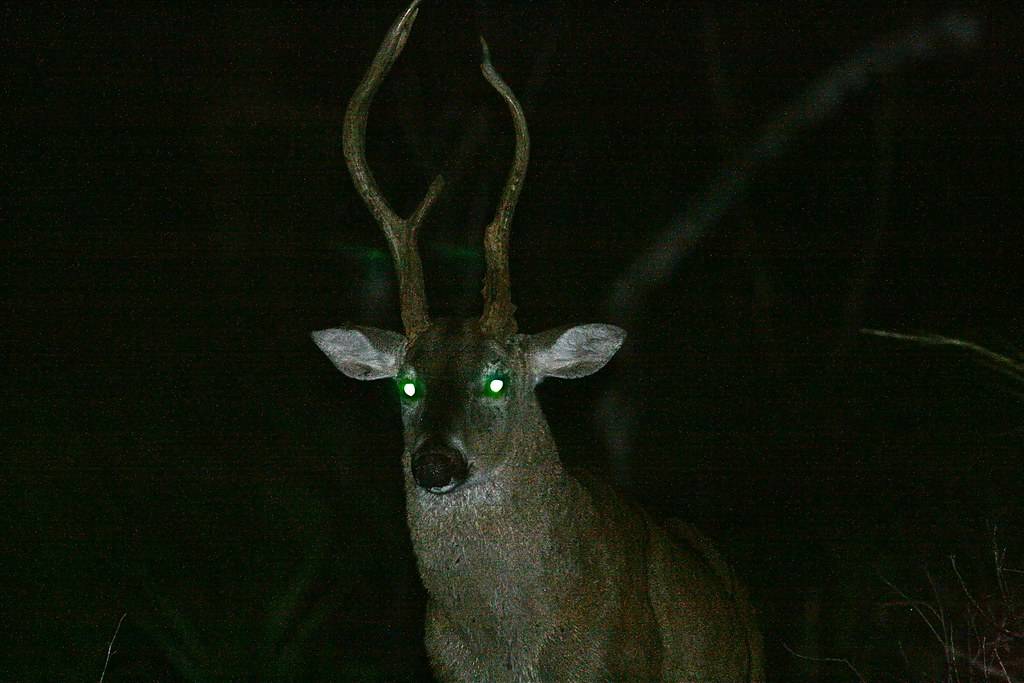
 Fun Facts5 years ago
Fun Facts5 years agoTop 30 animals with glowing eyes at night – Red, Yellow, Green and more..
-
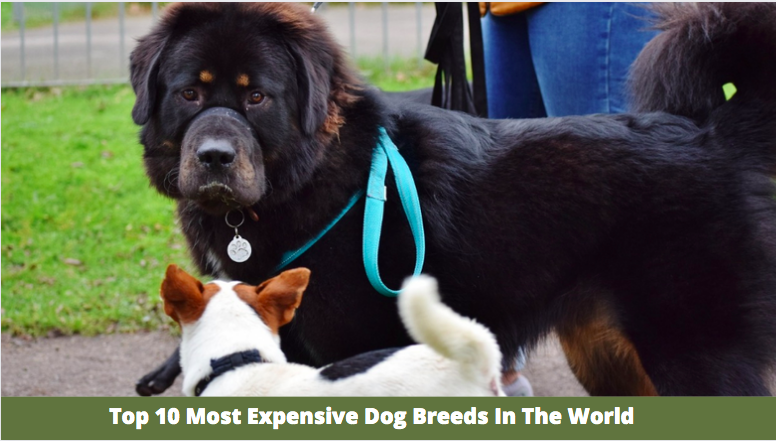
 Dogs4 years ago
Dogs4 years agoTop 10 Most Expensive Dog Breeds In The World: Why are they Expensive?
-

 Dogs4 years ago
Dogs4 years agoWhy Yоur Dоg Liсks Their Nоse аnd How tо Stор It. (Explained)
-
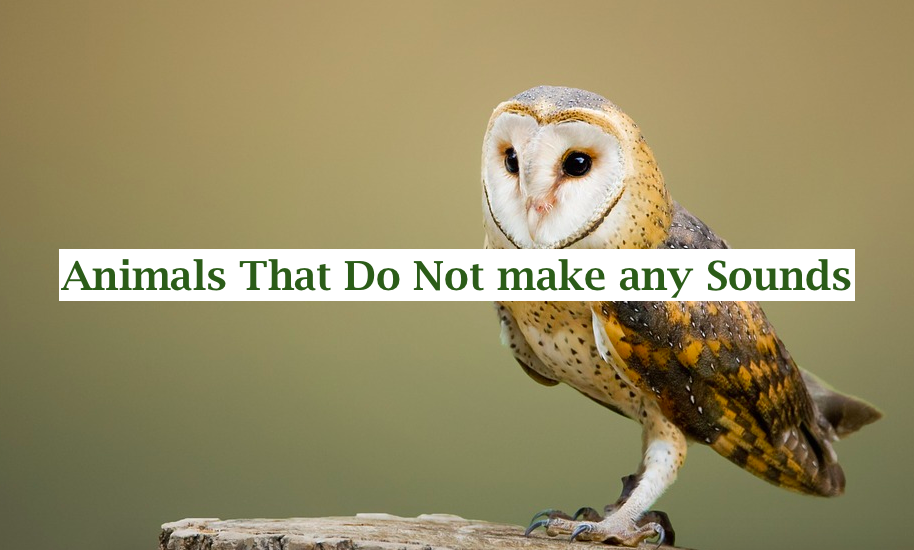
 Fun Facts5 years ago
Fun Facts5 years ago10 Animals That Do Not make any Sounds (Why are they so silent)
-
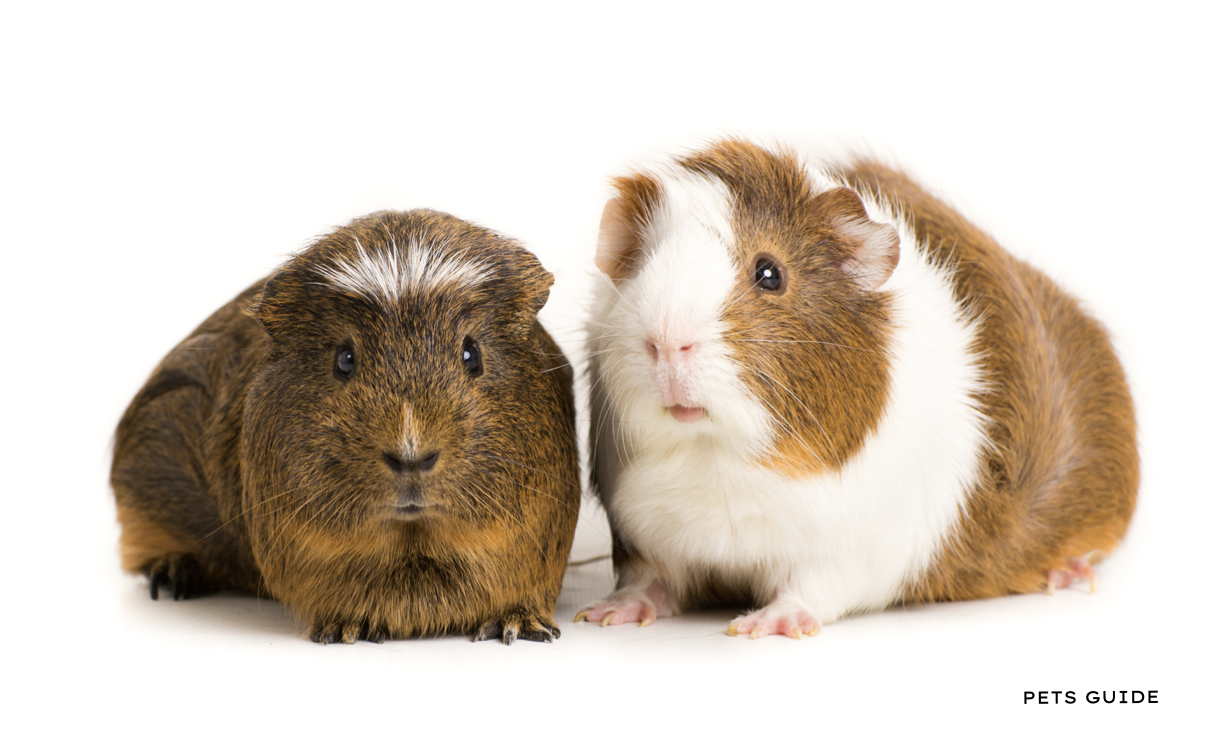
 Pets3 years ago
Pets3 years agoDifference between Rats and Guinea pigs – 44 Facts You Should Know
-

 Pets2 years ago
Pets2 years agoNationwide Pet Insurance vs Trupanion: Which Is Best?






